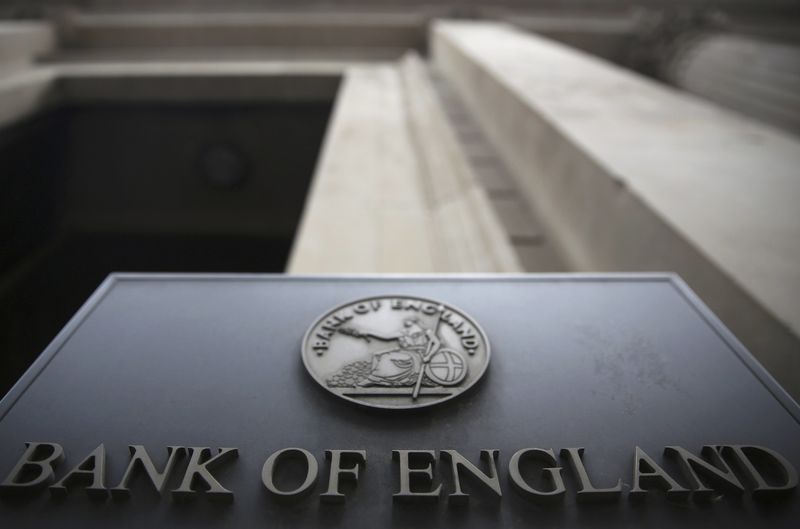Investing.com - The Bank of England left its key interest rate unchanged for the fourth straight meeting, as expected, with all nine members of its policy-making committee again voting not to rock the boat as the U.K. prepares to leave the EU.
The bank noted that U.K. economic growth slowed in late 2018 and “appears to have weakened further in early 2019. This slowdown mainly reflects softer activity abroad and the greater effects from Brexit uncertainties at home.”
With just 50 days until the deadline for the U.K. to leave the EU, the economy is showing clear signs of slowing down, as uncertainty leads companies to put off investment decisions, while a steady stream of unsettling political headlines weighs on consumer confidence.
The slowdown has put the Bank’s decision in August to raise its key refinancing rate to 0.75% in an unflattering light.
Data on Tuesday showed that companies in Britain are cutting jobs for the first time in six years as the economy stalls. The IHS Markit/CIPS UK Services Purchasing Managers’ Index, fell to 50.1 in January from 51.2 in December, which was its lowest level since July 2016.
Construction and services PMIs also fell in January, IHS/Markit said.
Inflation has also retreated in line with the drop in oil prices at the end of last year. From a peak of 3.1% at the end of 2017, it stood at only 2.1% in December.
“The economic outlook will continue to depend significantly on the nature of EU withdrawal, in particular: the new trading arrangements between the European Union and the United Kingdom; whether the transition to them is abrupt or smooth; and how households, businesses and financial markets respond,” the BoE stressed in its press release.
However, the base case scenario in the Bank's quarterly inflation report, also published Thursday, assumed that the current slowdown is likely to be only temporary. The Bank said:
Under the assumptions conditioning the February Inflation Report, a period of softer growth domestically and in
the rest of the world was likely to prove only temporary and, in the U.K., excess demand was expected to build
over the second half of the forecast period. As a result, CPI inflation was expected to settle at a rate a little
above the 2% target in the medium term, following a temporary period of slightly below-target inflation over
coming months.
The Bank also repeated its conclusion from the previous statement that : “The monetary policy response to Brexit, whatever form it takes, will not be automatic and could be in either direction.”
Prime Minister Theresa May is trying to convince EU leaders to renegotiate a key part of the withdrawal agreement, but the bloc has signalled it won't reopen a deal that took two years to negotiate.
May faces strong opposition from her Conservative Party, who want reassurance that the so-called ‘Irish backstop’ arrangements won’t leave the country effectively under EU laws in the long term.
The Bank’s messaging comes as both the Federal Reserve and the European Central Bank adopt a more cautious tone about the global economic outlook. The Fed signaled in January that it would pause its tightening of monetary policy, while the ECB expressed fears of downside risks to the economy amid weak data from Germany and fears of a recession in Italy.
